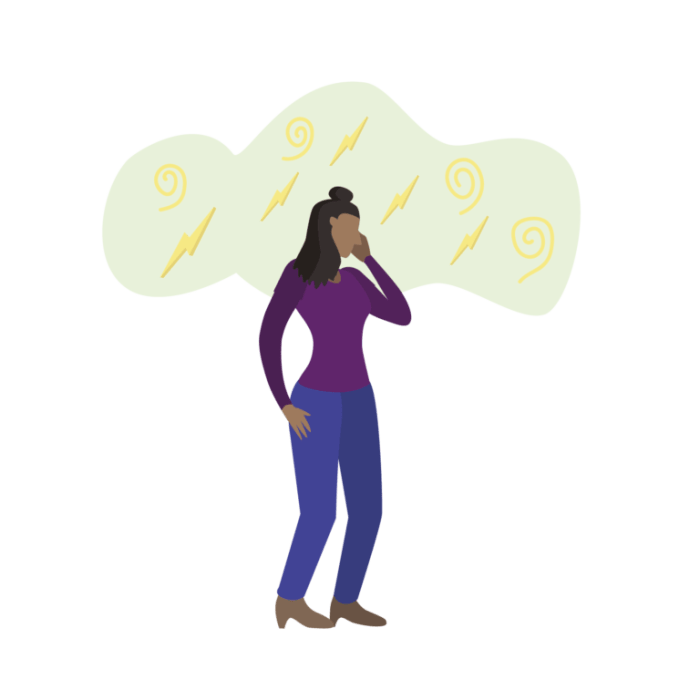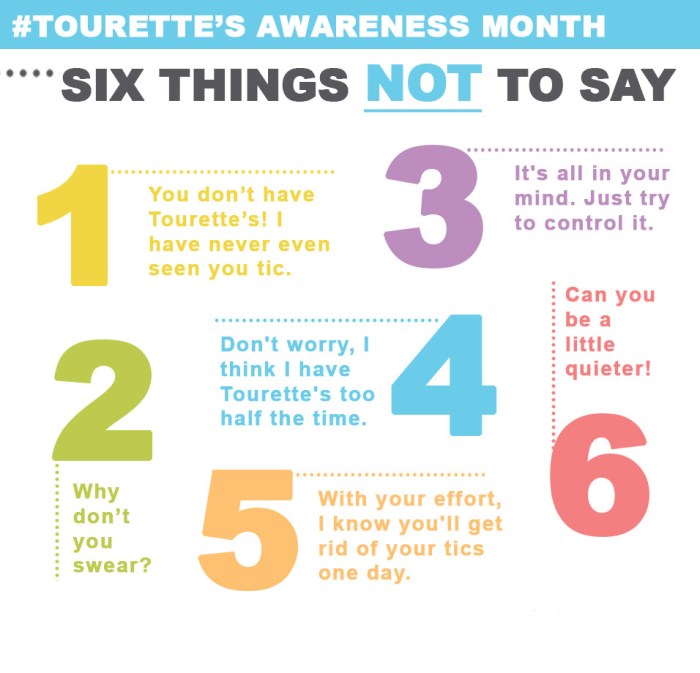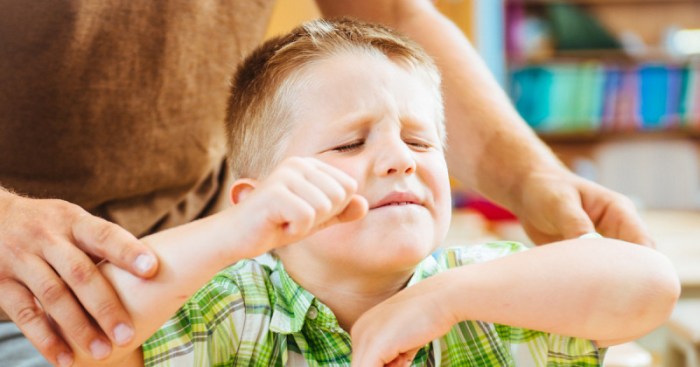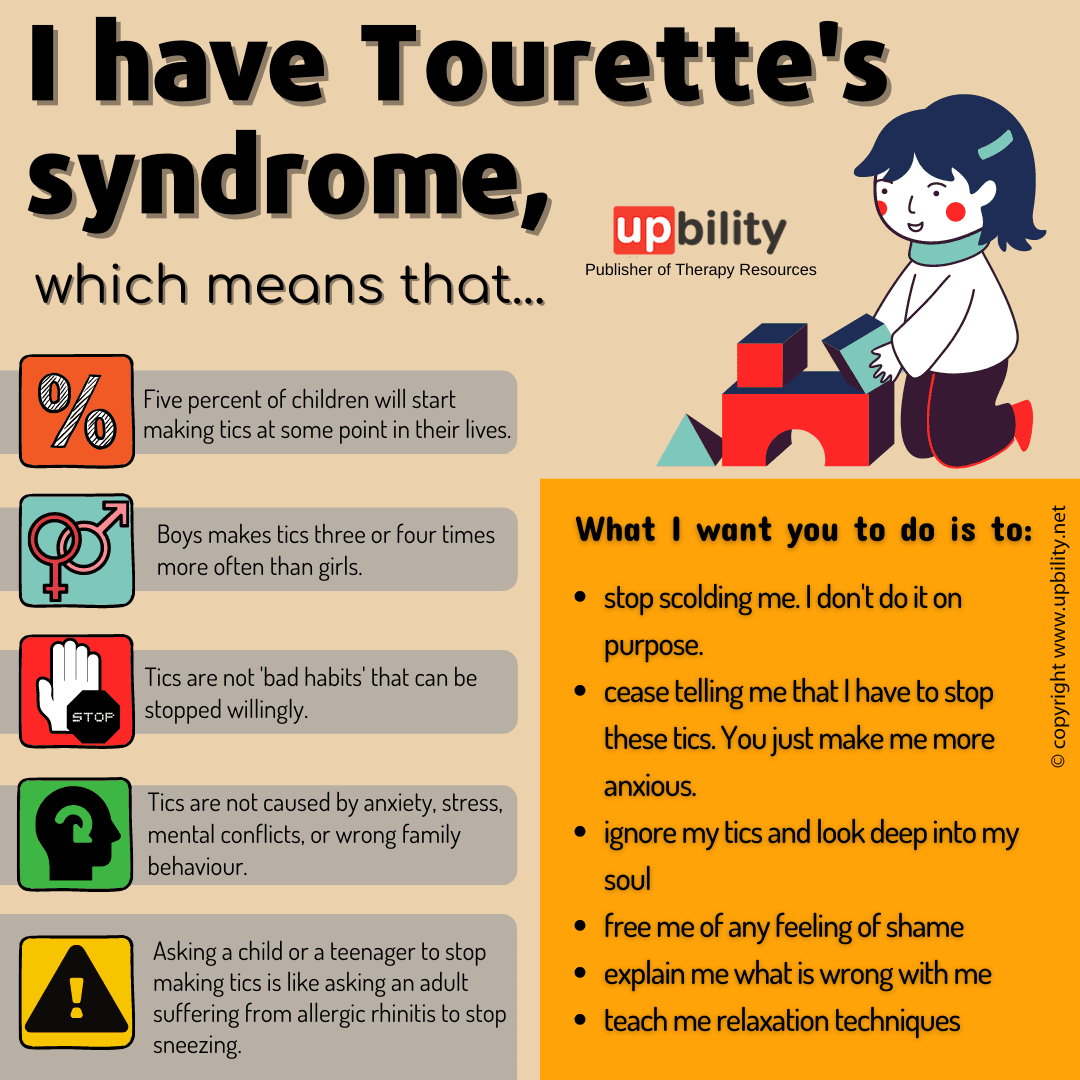Do I have Tourette syndrome quiz: Embark on a journey of self-discovery and gain invaluable insights into the complexities of Tourette syndrome. This comprehensive guide delves into the intricacies of this neurological condition, empowering you with knowledge and practical strategies to effectively manage its manifestations.
Unravel the enigmatic world of Tourette syndrome, exploring its characteristics, types of tics, prevalence, and impact. Understand the diagnostic criteria and differential diagnosis, delving into the nuances of healthcare professional involvement. Discover a comprehensive overview of treatment options, encompassing medications, behavioral therapy, and deep brain stimulation, weighing their effectiveness and potential side effects.
Tourette Syndrome Overview: Do I Have Tourette Syndrome Quiz

Tourette syndrome (TS) is a neurodevelopmental disorder characterized by the presence of multiple motor and vocal tics.
Tics are involuntary, repetitive movements or sounds that are often preceded by a premonitory urge or sensation. They can range in severity from mild to severe and can interfere with daily activities.
Types of Tics
- Motor tics: These are involuntary movements that can affect any part of the body, including the face, limbs, trunk, and head. Common motor tics include eye blinking, head shaking, shoulder shrugging, and facial grimacing.
- Vocal tics: These are involuntary sounds that can range from simple noises, such as throat clearing or sniffing, to more complex sounds, such as words or phrases.
Prevalence and Impact
TS is a relatively common disorder, affecting approximately 1 in 100 children and adolescents. It is more common in boys than girls.
The impact of TS can vary widely depending on the severity of the tics. Some individuals with TS may only experience mild tics that do not interfere with their daily lives. However, others may experience severe tics that can significantly impact their social, academic, and occupational functioning.
Symptoms of Tourette Syndrome

Tourette syndrome is a neurodevelopmental disorder characterized by the presence of tics, which are involuntary, repetitive movements or vocalizations. Tics can range in severity from mild to severe and can affect various parts of the body.
The most common symptoms of Tourette syndrome include:
- Motor tics: These are involuntary, repetitive movements that can affect any part of the body, including the head, neck, shoulders, arms, hands, legs, and feet.
- Vocal tics: These are involuntary, repetitive sounds or words that can range from simple noises like grunting or sniffing to more complex utterances like swearing or repeating phrases.
Tics can vary in severity and frequency. Some people with Tourette syndrome may only experience mild tics that occur occasionally, while others may have severe tics that occur frequently and can interfere with daily life.
Types of Motor Tics
Motor tics can be classified into two main types:
- Simple motor tics: These are brief, involuntary movements that involve a single muscle group, such as eye blinking, shoulder shrugging, or head jerking.
- Complex motor tics: These are more elaborate, involuntary movements that involve multiple muscle groups and can appear purposeful, such as jumping, hopping, or touching objects.
Types of Vocal Tics
Vocal tics can also be classified into two main types:
- Simple vocal tics: These are brief, involuntary sounds or words that are not socially acceptable, such as grunting, sniffing, or throat clearing.
- Complex vocal tics: These are more elaborate, involuntary sounds or words that may be socially unacceptable, such as swearing, repeating phrases, or echolalia (repeating what others say).
Diagnosis of Tourette Syndrome

Tourette syndrome is diagnosed based on the presence of specific symptoms and the exclusion of other conditions that may mimic its presentation. A comprehensive evaluation by a qualified healthcare professional is essential for an accurate diagnosis.
Diagnostic Criteria
The diagnostic criteria for Tourette syndrome, according to the Diagnostic and Statistical Manual of Mental Disorders, Fifth Edition (DSM-5), include:
- The presence of multiple motor tics and at least one vocal tic.
- The tics must have been present for more than a year.
- The tics are not caused by a substance or another medical condition.
Role of a Healthcare Professional
Healthcare professionals, such as neurologists or psychiatrists, play a crucial role in diagnosing Tourette syndrome. They conduct a thorough medical history and physical examination to assess the patient’s symptoms and rule out other potential causes. They may also order additional tests, such as brain imaging or blood work, to further evaluate the patient’s condition.
Differential Diagnosis
Differential diagnosis is essential to distinguish Tourette syndrome from other conditions that may present with similar symptoms. Some conditions that may be considered in the differential diagnosis include:
- Obsessive-compulsive disorder (OCD)
- Attention-deficit/hyperactivity disorder (ADHD)
- Autism spectrum disorder
- Pediatric autoimmune neuropsychiatric disorders associated with streptococcal infections (PANDAS)
Treatment Options for Tourette Syndrome

Tourette syndrome is a neurodevelopmental disorder characterized by involuntary tics. Treatment options aim to manage the severity and frequency of tics, improve daily functioning, and enhance quality of life.
Medications
Medications are often the first line of treatment for Tourette syndrome. They can help reduce the frequency and severity of tics. Common medications include:
- Clonidine: An antihypertensive medication that can reduce the intensity and frequency of tics.
- Guanfacine: Similar to clonidine, guanfacine is an antihypertensive medication used to treat tics.
- Aripiprazole: An atypical antipsychotic medication that can help reduce the severity of tics and improve behavior.
- Risperidone: Another atypical antipsychotic medication that can be effective in reducing tics.
Behavioral Therapy
Behavioral therapy techniques aim to help individuals manage and control their tics. Common therapies include:
- Habit Reversal Training (HRT): Teaches individuals to recognize and modify their tic behaviors by substituting them with more acceptable responses.
- Comprehensive Behavioral Intervention for Tics (CBIT): A combination of HRT and other behavioral techniques that focus on reducing tic frequency and severity.
Deep Brain Stimulation
Deep brain stimulation (DBS) is a surgical procedure that involves implanting electrodes into specific areas of the brain. DBS has been shown to be effective in reducing tics in individuals with severe Tourette syndrome who do not respond well to other treatments.
Effectiveness and Potential Side Effects
The effectiveness of treatment options varies depending on the individual and the severity of their tics. Medications can be effective in reducing tics, but they may also cause side effects such as drowsiness, fatigue, and weight gain. Behavioral therapy can be effective in managing tics, but it requires consistent effort and practice.
DBS is a highly effective treatment, but it is invasive and carries the risk of complications.
Coping Mechanisms for Tourette Syndrome
Coping mechanisms are strategies that individuals with Tourette Syndrome (TS) can use to manage their tics and reduce their impact on daily life. These mechanisms can help individuals improve their quality of life and participate more fully in their communities.
Coping mechanisms can be divided into two main categories: those that focus on managing the physical symptoms of TS and those that focus on managing the social and emotional challenges of TS.
Managing Physical Symptoms, Do i have tourette syndrome quiz
There are a number of strategies that individuals with TS can use to manage their tics. These strategies include:
- Habit Reversal Training (HRT):HRT is a type of therapy that teaches individuals to identify and replace their tics with more acceptable behaviors.
- Comprehensive Behavioral Intervention for Tics (CBIT):CBIT is a type of therapy that combines HRT with other techniques, such as relaxation training and exposure and response prevention.
- Medication:Medications, such as clonidine and guanfacine, can be used to reduce the severity of tics.
- Deep Brain Stimulation (DBS):DBS is a surgical procedure that involves implanting electrodes into the brain. DBS can be used to reduce the severity of tics in some individuals.
Managing Social and Emotional Challenges
In addition to managing the physical symptoms of TS, it is also important to address the social and emotional challenges that can accompany the disorder. These challenges can include:
- Stigma:Individuals with TS may experience stigma and discrimination from others. This can lead to feelings of shame, isolation, and low self-esteem.
- Bullying:Individuals with TS may be bullied by their peers. This can lead to further social isolation and emotional distress.
- Difficulty forming relationships:Individuals with TS may have difficulty forming relationships with others. This can be due to a number of factors, including stigma, bullying, and communication difficulties.
There are a number of things that individuals with TS can do to cope with the social and emotional challenges of the disorder. These include:
- Joining a support group:Support groups can provide individuals with TS with a sense of community and belonging. They can also provide information and support from others who understand what they are going through.
- Seeking professional help:A therapist can help individuals with TS to develop coping mechanisms and strategies for managing the social and emotional challenges of the disorder.
- Educating others:Educating others about TS can help to reduce stigma and discrimination. This can be done through presentations, workshops, or social media.
Q&A
What is the main characteristic of Tourette syndrome?
The hallmark of Tourette syndrome is the presence of multiple motor and vocal tics that occur involuntarily and repeatedly.
How is Tourette syndrome diagnosed?
A healthcare professional will evaluate symptoms, medical history, and family history to make a diagnosis based on specific diagnostic criteria.
What are the treatment options for Tourette syndrome?
Treatment options include medications, behavioral therapy, and deep brain stimulation, each with varying effectiveness and potential side effects.